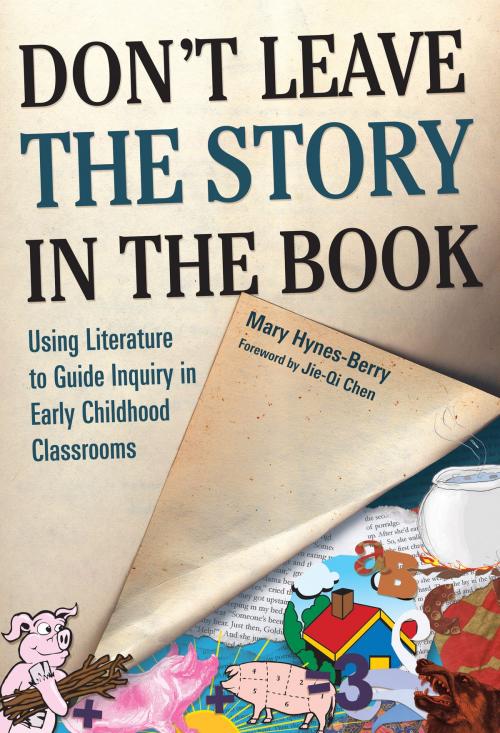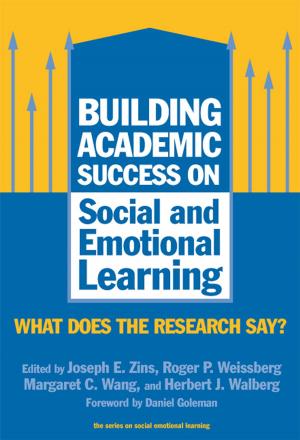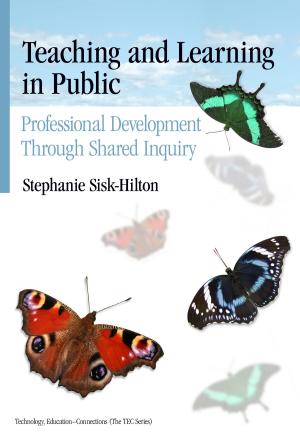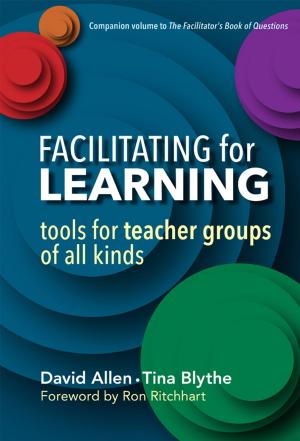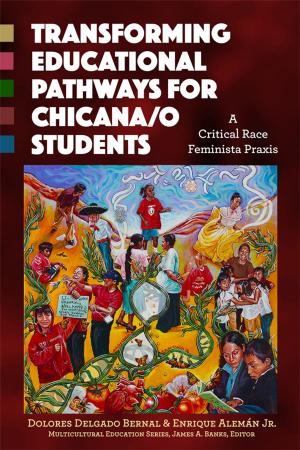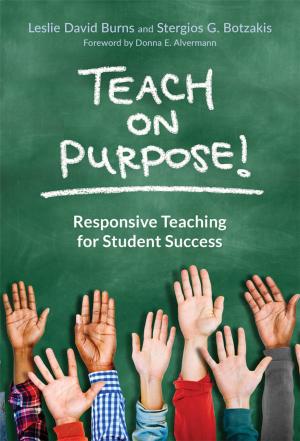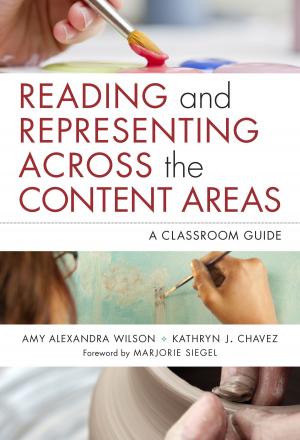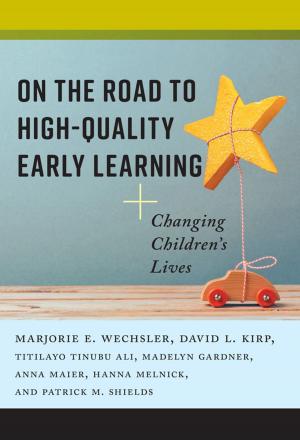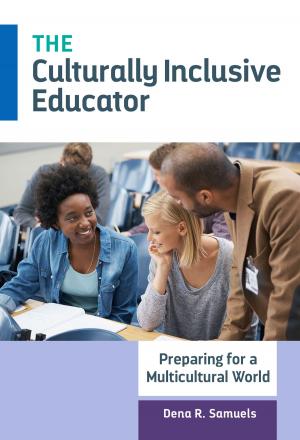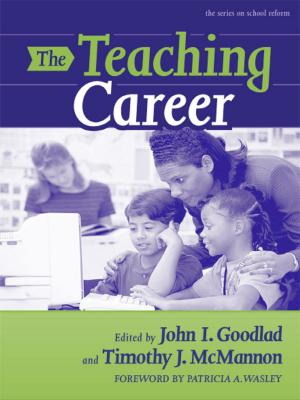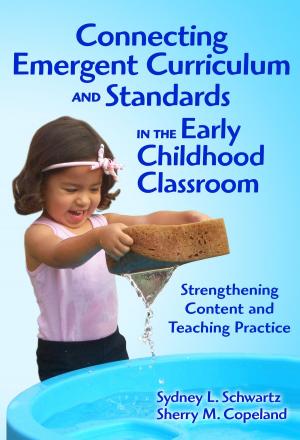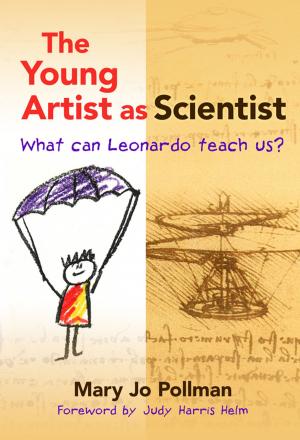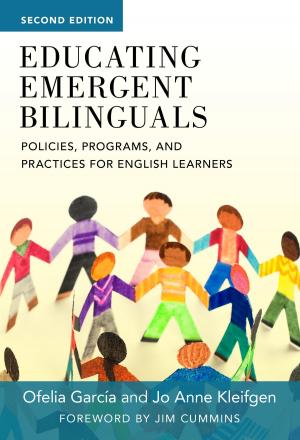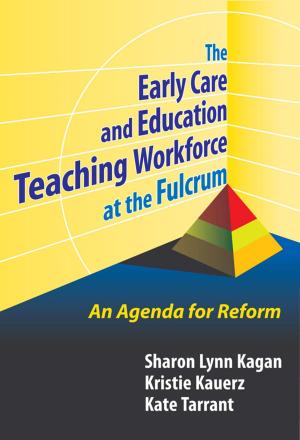Don't Leave the Story in the Book
Using Literature to Guide Inquiry in Early Childhood Classrooms
Nonfiction, Reference & Language, Language Arts, Literacy, Education & Teaching, Preschool & Kindergarten| Author: | Mary Hynes-Berry | ISBN: | 9780807771778 |
| Publisher: | Teachers College Press | Publication: | December 15, 2009 |
| Imprint: | Language: | English |
| Author: | Mary Hynes-Berry |
| ISBN: | 9780807771778 |
| Publisher: | Teachers College Press |
| Publication: | December 15, 2009 |
| Imprint: | |
| Language: | English |
“Passion and wonder are in short supply in schools these days. If you want to bring powerful stories into your classroom that inspire curiosity and questions, spark deep thinking and cultivate thoughtful conversations, embrace this book!”
—Anne Goudvis, consultant and author
“Don’t Leave the Story in the Bookis a boon to every classroom teacher, for it brings such a wonder of spontaneity and humor into one’s own thoughts about books. Not only does Mary Hynes-Berry legitimize the children’s sometimes off track questions, but she gives teachers permission to indulge their own curiosity and fanciful meanderings, just see where they go.”
—Vivian Gussin Paley
“When children are given ample opportunity to use language, they have a greater potential to increase vocabulary and syntactic skills. Hynes-Berry’s book offers numerous suggestions on how to give students such opportunity. Her approach is practical, simple, and is based on solid theoretical research on how young students learn.”
—TC Record
“One of the book’s strengths is the author’s masterful description of core beliefs about teaching and learning—beliefs that drive good practice in early childhood classrooms.... Hynes-Berry offers practical ideas for working with teachers and students in professional learning communities in preservice and in-service education and with families, children and teachers in innovative community literacy projects.”
—Young Children
“Books and stories do not automatically produce quality intellectual work in the classroom. Intellectual quality depends also on adults—committed and intentional teachers and parents who activate the potential of stories.To help teachers build on what they know about stories, Mary describes praxes for using books that are grounded in well-defined principles of teaching and learning.”
—From the Foreword byJie-Qi Chen, Erikson Institute
“Don’t Leave the Story in the Bookis beautifully written. The ideas are inspiring and brilliant. It is very relevant to the current discussion about the Common Core’s outrageous virtually exclusive focus on information text.”
—Yong Zhao, College of Education,University of Oregon, author ofCatching Up or Leading the Way: American Education in the Age of Globalization
Drawing from 30 years of teaching and professional development experience, this book offers a roadmap for using children's literature to provide authentic learning. Featuring a “storyteller’s voice,” each chapter includes a case study about how a particular fiction or nonfiction work can be used in an early childhood classroom; a series of open-ended questions to help readers construct their own inquiry units; and a bibliography of children’s literature. This book provides a unique synthesis of ideas based on constructivist approaches to learning, including the importance of positive dispositions and learning communities, the nature of higher-order thinking, and the relationship between methods such as guided inquiry in the sciences and balanced literacy.
Mary Hynes-Berrybrings a lifetime of using oral storytelling to promote learning in her work with preservice and in-service teachers at Erikson Institute, Chicago, Illinois.
“Passion and wonder are in short supply in schools these days. If you want to bring powerful stories into your classroom that inspire curiosity and questions, spark deep thinking and cultivate thoughtful conversations, embrace this book!”
—Anne Goudvis, consultant and author
“Don’t Leave the Story in the Bookis a boon to every classroom teacher, for it brings such a wonder of spontaneity and humor into one’s own thoughts about books. Not only does Mary Hynes-Berry legitimize the children’s sometimes off track questions, but she gives teachers permission to indulge their own curiosity and fanciful meanderings, just see where they go.”
—Vivian Gussin Paley
“When children are given ample opportunity to use language, they have a greater potential to increase vocabulary and syntactic skills. Hynes-Berry’s book offers numerous suggestions on how to give students such opportunity. Her approach is practical, simple, and is based on solid theoretical research on how young students learn.”
—TC Record
“One of the book’s strengths is the author’s masterful description of core beliefs about teaching and learning—beliefs that drive good practice in early childhood classrooms.... Hynes-Berry offers practical ideas for working with teachers and students in professional learning communities in preservice and in-service education and with families, children and teachers in innovative community literacy projects.”
—Young Children
“Books and stories do not automatically produce quality intellectual work in the classroom. Intellectual quality depends also on adults—committed and intentional teachers and parents who activate the potential of stories.To help teachers build on what they know about stories, Mary describes praxes for using books that are grounded in well-defined principles of teaching and learning.”
—From the Foreword byJie-Qi Chen, Erikson Institute
“Don’t Leave the Story in the Bookis beautifully written. The ideas are inspiring and brilliant. It is very relevant to the current discussion about the Common Core’s outrageous virtually exclusive focus on information text.”
—Yong Zhao, College of Education,University of Oregon, author ofCatching Up or Leading the Way: American Education in the Age of Globalization
Drawing from 30 years of teaching and professional development experience, this book offers a roadmap for using children's literature to provide authentic learning. Featuring a “storyteller’s voice,” each chapter includes a case study about how a particular fiction or nonfiction work can be used in an early childhood classroom; a series of open-ended questions to help readers construct their own inquiry units; and a bibliography of children’s literature. This book provides a unique synthesis of ideas based on constructivist approaches to learning, including the importance of positive dispositions and learning communities, the nature of higher-order thinking, and the relationship between methods such as guided inquiry in the sciences and balanced literacy.
Mary Hynes-Berrybrings a lifetime of using oral storytelling to promote learning in her work with preservice and in-service teachers at Erikson Institute, Chicago, Illinois.
